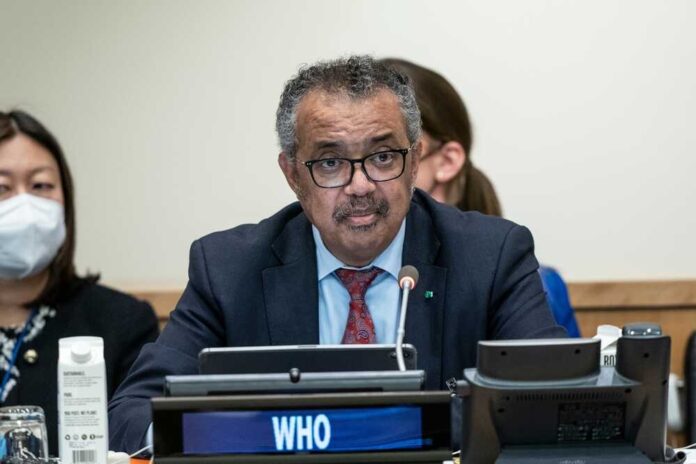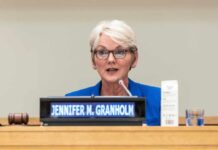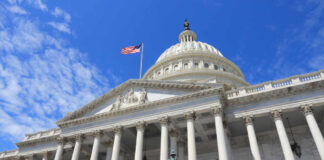
World Health Organization (WHO) Director-General Tedros Adhanom Ghebreyesus announced his agency would no longer label the COVID-19 pandemic a Public Health Emergency of International Concern (PHEIC).
COVID-19 “is no longer an unusual or unexpected event,” and “the world has made significant and impressive global progress since the declaration of the PHEIC in January 2020,” permitting a change in approach to the disease.
The PHEIC designation is one of the more severe alarms the WHO can sound concerning disease outbreaks or other health complications. It gets appointed in situations that “require immediate international action” and are dangerous to the health and safety of multiple countries if not the entire world.
On Jan. 30, 2020, Tedros labeled the COVID-19 pandemic a PHEIC, nearly a month after Taiwan first alerted the WHO about the spread of an unknown infectious disease in central China.
After the WHO’s emergency committee met to address the pandemic, Tedros announced the downgrade.
“With great hope I declare COVID-19 [Wuhan coronavirus] over as a global health emergency,” he wrote on social media.
Yesterday, the #COVID19 Emergency Committee met for the 15th time and recommended to me that I declare an end to the public health emergency of international concern. I have accepted that advice.
With great hope I declare COVID-19 over as a global health emergency.
— Tedros Adhanom Ghebreyesus (@DrTedros) May 5, 2023
The WHO released a statement explaining Tedros’ decision, noting “the decreasing trend in COVID-19 deaths, the decline in COVID-19 related hospitalizations and intensive care unit admissions, and the high levels of population immunity to SARS-CoV-2 [the virus that causes Wuhan coronavirus disease].”
“While the global risk assessment remains high, there is evidence of reducing risks to human health driven mainly by high population-level immunity from infection, vaccination, or both,” the agency said.
“These factors have contributed to a significant global decline in the weekly number of COVID-19 related deaths, hospitalizations, and admissions to intensive care units since the beginning of the pandemic,” it continued. “While SARS-CoV-2 continues to evolve, the currently circulating variants do not appear to be associated with increased severity.”
The designation change allows the WHO to address the virus with changes to long-term care as a permanent challenge instead of an ongoing emergency. Despite the designation, the agency said it would continue to offer vaccine products to poorer nations and work to increase access to these products. Products that the WHO approved in an emergency process would remain available.
The WHO concluded its announcement by calling for governments worldwide to “integrate” COVID-19 vaccine products into existing vaccine schedules for other diseases and to end all COVID-19 travel restrictions.
The agency refused to end the emergency as recently as January 2023. At the time, Tedros noted that while the world was “in a far better situation” than in 2022, many COVID-19-related deaths were still being reported.
“We remain hopeful that in the coming year, the world will transition to a new phase in which we reduce hospitalizations and deaths to the lowest possible level,” he said.
Tedros announced that the pandemic rose to a PHEIC in January 2023, expressing concern that it could hurt countries with weak healthcare systems. He emphasized that the designation was not a criticism of China, considering it’s the origin country of the virus, for its role in the disease.
“This declaration is not a vote of non-confidence in China. …On the contrary, WHO continues to have confidence in China’s capacity to control the outbreak,” he said.
I am declaring a public health emergency of international concern over the global outbreak of #2019nCoV, not because of what is happening in #China, but because of what is happening in other countries.https://t.co/HNrxyGeoBA
— Tedros Adhanom Ghebreyesus (@DrTedros) January 30, 2020
COVID-19 first appeared in a central Chinese metropolis in late 2019. Leaked Chinese documents in the South China Morning Post state that the Chinese government diagnosed its first human infection on Nov. 17, 2019.
Taiwan’s government alerted the WHO in a letter about the disease’s existence in December 2019, noting that its intelligence revealed that health workers feared the spread of an unknown infectious disease. Taiwanese officials pointed out a need for isolating patients, suggesting human-to-human transmission.
“Taiwan did report our concern on the severity of coronavirus last December to the WHO,” The Taiwanese Economic and Cultural Representative Office in Washington, D.C., told Breitbart News in March 2020.
“But as a rule, our reporting is always a one-way street. W.H.O. mostly ignored our messages and never shared information as they do to other countries,” the Taiwanese office added.
On Jan. 14, 2020, the WHO announced it had “no clear evidence of human-to-human transmission of the novel coronavirus.”
Preliminary investigations conducted by the Chinese authorities have found no clear evidence of human-to-human transmission of the novel #coronavirus (2019-nCoV) identified in #Wuhan, #China🇨🇳. pic.twitter.com/Fnl5P877VG
— World Health Organization (WHO) (@WHO) January 14, 2020
The WHO admitted humans could transmit the virus less than two weeks after it first said there was no clear evidence of such transmission. The agency declared the pandemic a PHEIC before the end of January 2020. By then, approximately 5 million people traveled out of China during the Lunar New Year holiday, spreading the disease across the globe.
















